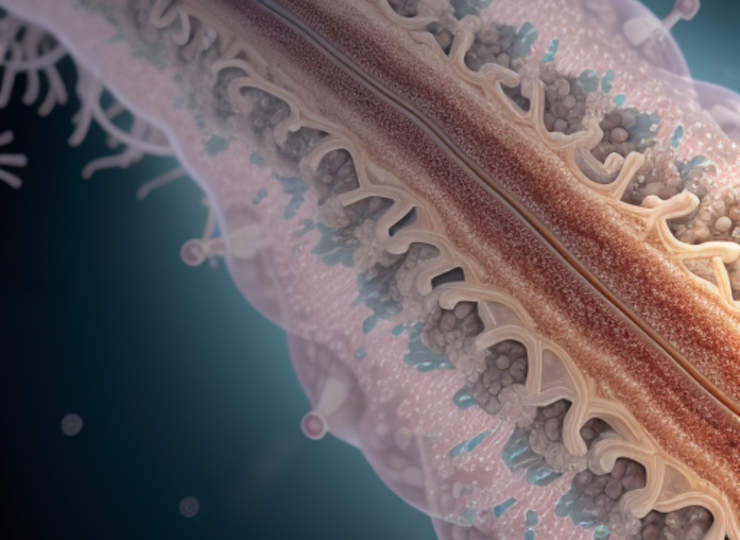文字のサイズ
- 小
- 中
- 大
Intestinal bacterial flyers cause colorectal cancer
A research group led by Tasuku Miyagawa, a specially-appointed clinician at the Department of Optical Medicine at the University of Tokyo Hospital, Motoyuki Otsuka, a lecturer at the Department of Gastroenterology at the same hospital, and Mitsuhiro Fujishiro, a professor at the same hospital, have found that Actinomyces odontolyticus, a type of oral bacteria, is closely involved in the early stages of colorectal cancer carcinogenesis The study revealed that A. odontolyticus is closely involved in the early stages of colorectal cancer development.

Previous genomic analyses of intestinal bacteria have shown that A. odontolyticus is frequently found in the stools of patients with early-stage colorectal cancer, but its involvement in the development of colorectal cancer (as a cause or a consequence of cancer) was unknown.
The present study shows that membrane vesicles (MVs), extracellular vesicles produced by A. odontolyticus, may induce carcinogenesis by inducing inflammation of intestinal epithelial cells and by increasing reactive oxygen species in intestinal epithelial cells, causing DNA damage. The mechanism of the disease is based on the induction of inflammation in A. odontogenes.
The mechanism is that MVs from A. odontolyticus induce inflammatory signals in the colonic epithelium via Toll-like receptor 2 (TLR2), while M Vs are taken up by the intestinal epithelial cells and cause mitochondrial dysfunction, resulting in excessive production of reactive oxygen species, As a result, M Vs induces DNA damage in colonic epithelial cells and has been identified as being involved in carcinogenesis






